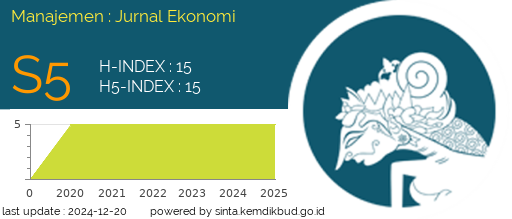Implementation of Geocentric Finance Equity Concept and Ergo-Iconical Value for MSME Financial Management
DOI:
https://doi.org/10.36985/as2afy61Keywords:
Geocentric Finance Equity, Ergo-Iconic Value, MSME PerformanceAbstract
The purpose of this study is to bridge the research gap in order to provide solutions to the problems of financial management of MSMEs. This study uses a qualitative approach by using various financial, marketing and performance literature in order to provide answers to research objectives, which are carried out with an Interpretive Phenomenological Approach that emphasises interpretation in the context of novelty Geocentric Finance Equity and Ergo-Iconical Value for MSME performance. The locus of this research is MSMEs operating in West Nusa Tenggara Province. The following are the stages of the process carried out This research also conducts Observation and Interview activities for MSMEs whose locations are easily accessible and meet the criteria. The criteria referred to in this research are fulfilling the requirements of MSMEs as regulated by the current laws in Indonesia. The survey results show that financial literacy among MSMEs is still low, with only 36% demonstrating an adequate understanding of financial management. The importance of adopting effective financial management strategies, including the development of unique product attributes that align with local culture and needs through Ergo-Iconical values. Financial Justice Geocentric has the potential to provide a framework for contextualising financial practices in line with local cultural identity, thereby promoting sustainable growth. A key finding is that many MSMEs do not have a separate emergency fund, and often fail to set aside profits for reinvestment or growth. Product differentiation is also lacking, leading to a competitive disadvantage in a dynamic market. In addition, survey results show that financial literacy among MSMEs is still low. The implication of the research is that the government should support MSMEs' access to finance and training is crucial in addressing these challenges. This multifaceted approach can lead to better outcomes for MSMEs, contributing to Indonesia's broader economic stability. Overall, the study emphasises the importance of financial literacy, innovative management practices, and strategy adaptation to improve MSME competitiveness in a rapidly evolving market
Downloads
Downloads
Published
Issue
Section
License
Copyright (c) 2024 Nengah Sukendri, Andriyansah Andriyansah (Author)

This work is licensed under a Creative Commons Attribution 4.0 International License.







